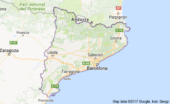Molly Minturn - My family is heartbroken to share that my father died in surgery on Monday, Feb. 10. It…
U.S. elections 2012
Written by Diana Thebaud Nicholson // February 11, 2012 // Adam Daifallah, U.S. // Comments Off on U.S. elections 2012
(Wikipedia) Political action committee
The 2010 election marked the rise of a new political committee, dubbed the “super PAC,” and officially known as “independent-expenditure only committees,” which can raise unlimited sums from corporations, unions and other groups, as well as individuals.[5] The super PACs were made possible by two judicial decisions. First the U.S. Supreme Court held in Citizens United v. Federal Election Commission that government may not prohibit unions and corporations from making independent expenditures about politics. Soon after, in Speechnow.org v. FEC, the Federal Court of Appeals for the D.C. Circuit held that contributions to groups that only make independent expenditures could not be limited.[6] Super PACs are not allowed to coordinate directly with candidates or political parties since they are “independent”. However, a candidate may “talk to his associated super PAC via the media. And the super PAC can listen, like everybody else,” according to journalist Peter Grier, election law expert Rick Hasen[7] and former chairman of the United States Federal Election Commission Trevor Potter (the lawyer of TV satirists Jon Stewart and Stephen Colbert[8]).
Who’s Financing the ‘Super PACs’
The Times tracked donors to “super PACs” as they filed reports on Tuesday detailing their activities in the final three months of 2011. Unlike candidates, who can raise a maximum of $2,500 per person for each election, super PACs are independent from candidates and can raise unlimited amounts from individuals, corporations and labor unions, and spend unlimited amounts to support or oppose a candidate.
Excellent graphic explanation of delegate race The Republican delegate race explained — in one chart
Competition for Delegates: Stepping Up to the Nomination
There are 2,286 delegates up for grabs in this year’s GOP presidential race, and a candidate needs more than half to become the party’s nominee. Iowa, New Hampshire and South Carolina accounted for less than 3 percent of the total possible delegates, despite the importance placed on those early contests
Hand counts of votes may cause errors, says new Rice University study
Hand counting of votes in postelection audit or recount procedures can result in error rates of up to 2 percent, according to a new study from Rice University and Clemson University.
“These procedures are intended as a safeguard against computer and human error, but until recently, no research existed to tell whether these efforts helped or hurt the accuracy of the vote,” said Michael Byrne, associate professor of psychology at Rice.
++++++++++++++++++
The Contraceptive Clash: Not About Religious Rights
(Big Think) A foray into First Amendment law and the political philosophy of religious toleration reveals that in reality there are no tradeoffs here — there is no balance to be struck. Political considerations fueled the administration’s policy pivot on Friday, but religious liberty, properly conceived, was never at stake.
Political fallout from birth control fight: A glimmer of good news for Obama?
Under fire from Catholic bishops and others, the Obama administration had to backtrack on contraception and health insurance. But many Catholics differ with the church hierarchy over birth control.
(CSM) But for now, as Jonathan Allen at Politico put it, “The battle over contraceptive coverage at religiously affiliated institutions has bound together Republicans of all stripes because it hits core GOP themes: religious liberty, government intrusion, and reproduction politics.” The Contraceptive Clash: Not About Religious Rights A foray into First Amendment law and the political philosophy of religious toleration reveals that in reality there are no tradeoffs here — there is no balance to be struck. Political considerations fueled the administration’s policy pivot on Friday, but religious liberty, properly conceived, was never at stake. – This is a Must Read on the topic.
9 February
Adam Daifallah: CPAC reveals deep divisions in the Republican Party
(National Post) The Conservative Political Action Conference, known as CPAC, has for five decades been the preeminent annual gathering for American right-wingers. But never — in my memory, at least — has the confab taken on more importance than the one this weekend.
Conservatives here are restless and anxious — even angry — about the state of the Republican primary contest. They desperately want to get behind a true believer, and they want it to be someone who can beat Barack Obama. Even if they accept that Mitt Romney can do the latter, it’s the former requirement that’s tripping him up. However, the CSM reports that CPAC: After a tough week, Romney wins conservative straw poll: Mitt Romney won the CPAC straw poll of conservative activists Saturday. It doesn’t bring him any convention delegates, but it does show good standing among the Republican Party base.
David Frum: Trump was looking for a rebel, and settled for Romney


